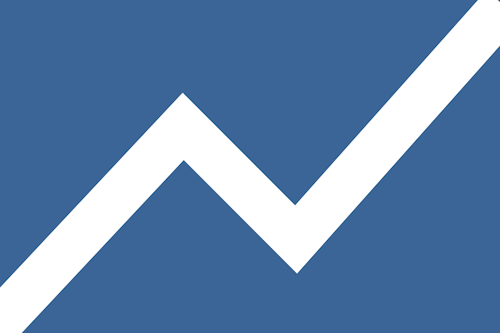Testimony before the House Financial Services Committee

Testimony of Emily Liner
Senior Policy Advisor
Third Way
Before the House Financial Services Committee
April 28, 2017
Chairman Hensarling, Ranking Member Waters, and Members of the Committee, thank you for the opportunity to testify at today’s hearing. My name is Emily Liner, and I am a senior policy advisor in the Economic Program at Third Way, a centrist think tank located in Washington, DC.
There are many reasons to support the Dodd-Frank financial reform law. The perspective I am going to take is on Dodd-Frank’s positive effect on economic growth. My view and the view of Third Way—from studying this law and speaking with dozens and dozens of experts in the realm of business and finance—is that Dodd-Frank is pro-growth, pro-market, and pro-investor. That is why we at Third Way are concerned that the Financial CHOICE Act would undo the progress that Dodd-Frank has made to make the financial sector safer while still preserving its ability to innovate and allocate capital.
Let me take you through why we feel this way. Let’s start with risk-weighted capital. Risk-weighted capital is one of the air bags that protects our banking system from melting down. It requires banks to maintain a sufficient level of equity based on the riskiness of its assets. Because of Dodd-Frank, risk-weighted capital in the U.S. banking sector has increased 41% since 2009.1 That means banks are significantly safer. And thanks to the banking watchdogs at the Federal Reserve, the eight biggest U.S. banks are required to have risk-weighted capital levels above and beyond the industry standard. That keeps banks safe and sound, which is good for growth, for markets, and for investors. The CHOICE Act, however, repeals risk-weighted capital, as well as the liquidity coverage ratio. This will make banks less safe and will—at some point—cost our economy, undermine growth, and hurt investors.
What makes Dodd-Frank a pro-market law is its focus on risk that could be spread through interconnected financial institutions. Stress tests, for example, are an annual exam of the nation’s largest and most important financial institutions to determine if they could survive a bad recession. It is not an easy test, nor should it be. Eventually, there will be another economic downturn, and we need to be certain that our largest financial institutions can weather the storm so that we can return to growth, we can return to strong markets, and we can prevent massive investor losses far more quickly. If we had had stress tests before the financial crisis, we could have been prepared to take action before the chain reaction of bank failures unfolded. The CHOICE Act weakens the stress test exercise by making the penalty on paying out dividends optional for banks that meet its low standard for exemption from the rules. Make no mistake, this will come back to hurt our economy.
Finally, Dodd-Frank is a pro-investor law. The Volcker Rule ensures that American families who participate in the markets as retail investors are protected from harm. Investment bankers can still take risks, but the Volcker Rule prevents that risk from spilling over and hurting innocent people. During the financial crisis, $2.8 trillion in retirement savings evaporated.2 We owe it to the hardworking Americans who lost the money they spent years scrimping and saving to never let this happen again. But the CHOICE Act repeals the Volcker Rule as well as other reforms that keep the financial system healthy.
The few safety and soundness standards the CHOICE ACT does include—like the 10% leverage ratio—are simply not enough alone to protect the world’s largest economy. Under the CHOICE Act’s regime, the leverage ratio is the only thing standing between some regulation and no regulation. No one should be comfortable with just one number determining whether banks can opt-out of the entire framework for financial safety regulation.
Dodd-Frank is a balanced law that makes banks safer. When banks are safer, we reduce the probability that a crisis will happen. That gives the economy more room to run and grow. According to a cost-benefit analysis of capital and liquidity requirements we performed at Third Way, we find that Dodd-Frank contributes $351 billion to U.S. GDP over 10 years.3 There is a tangible economic benefit to making the financial sector more stable.
When the economy is humming along, we rarely acknowledge that regulations create a safe environment that allows the economy to expand. But when the economy blows a fuse, it is Dodd-Frank, not the Financial CHOICE Act, that will make sure recessions are short and manageable. For reasons of economic growth, healthy markets, and investor protection, Third Way opposes this legislation to repeal our strongest financial reforms and replace them with such a weak alternative.
Endnotes
United States, Federal Deposit Insurance Corporation, “Balance Sheet,” QBP Time Series Spreadsheets, Quarterly Banking Profile, December 31, 2016. Accessed March 24, 2017. Available at: https://www.fdic.gov/bank/analytical/qbp/. Cited in “The CHOICE Act Doesn’t Prevent Bailouts. Dodd-Frank Does.” Third Way, Memo, April 25, 2017. Accessed April 27, 2017. Available at http://www.thirdway.org/third-way-take/the-choice-act-doesnt-prevent-bank-bailouts-dodd-frank-does.
“The Cost of the Crisis,” Report, Better Markets, July 20, 2015, p. 10. Accessed January 10, 2017. Available at: https://www.bettermarkets.com/costofthecrisis.
“The Economic Benefit of a Stable Financial System,” Third Way, Report, January 11, 2017. Accessed April 27, 2017. Available at http://www.thirdway.org/report/the-economic-benefit-of-a-stable-financial-system.
